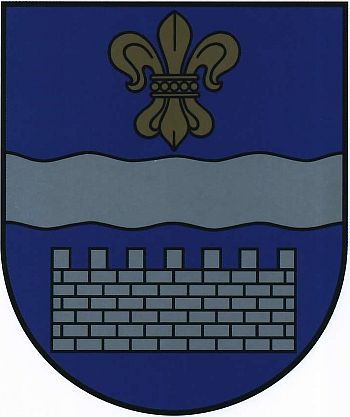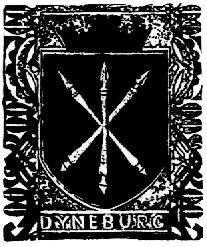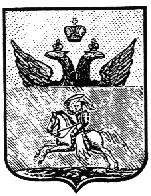Daugavpils: Difference between revisions
Knorrepoes (talk | contribs) m (Text replacement - "|Arms of {{PAGENAME}}" to "|Arms (crest) of {{PAGENAME}}") |
Knorrepoes (talk | contribs) m (Text replacement - "====Origin/meaning====" to "===Origin/meaning===") |
||
| Line 9: | Line 9: | ||
Zilā laukā sudraba viJņota sija, augšā zelta lilija, pēdā savrups robots sudraba ķieģeļu mūris. | Zilā laukā sudraba viJņota sija, augšā zelta lilija, pēdā savrups robots sudraba ķieģeļu mūris. | ||
===Origin/meaning=== | |||
The arms were granted in 1925. | The arms were granted in 1925. | ||
Revision as of 18:45, 22 June 2017
Template:Latvia DAUGAVPILS
Region : Latgale
Official blazon
Zilā laukā sudraba viJņota sija, augšā zelta lilija, pēdā savrups robots sudraba ķieģeļu mūris.
Origin/meaning
The arms were granted in 1925.
Daugavpils was a Lithuanian castle Novene or Naujene initially. The Teutonic Order destroyed it and in 1275 built the castle Duneborch here. The town developed around the castle. In the 1570s the new Dyneburg city was established in a slightly different place. In 1582 city rights and arms were granted. The arms show three crossed lances.
| The arms of Dyneburg |
In 1777 the city, called then Dünaburg, fell to the Russian Empire and was renamed to Borisoglebov. In 1781 the new arms were granted. Like Rezekne and Ludza, Daugavpils got the Polotsk arms, but the knight's background was crimson.
| The arms from 1781 |
After the independence of Latvia the city was renamed to Daugavpils, and the new arms were granted in 1925: the fleur-de-lis in the upper part is an old knight's symbol and shows that knights established this city. The wavy line in the center symbolizes the Daugava river. The masonry in the lower part symbolizes the Daugavpils citadel, built by the Russian Empire.
Contact and Support
Partners:
Your logo here ?
Contact us
© since 1995, Heraldry of the World, Ralf Hartemink 
Index of the site
Literature : Latvias ģerboņi, 2008












